Change to Google Search will provide more useful answers
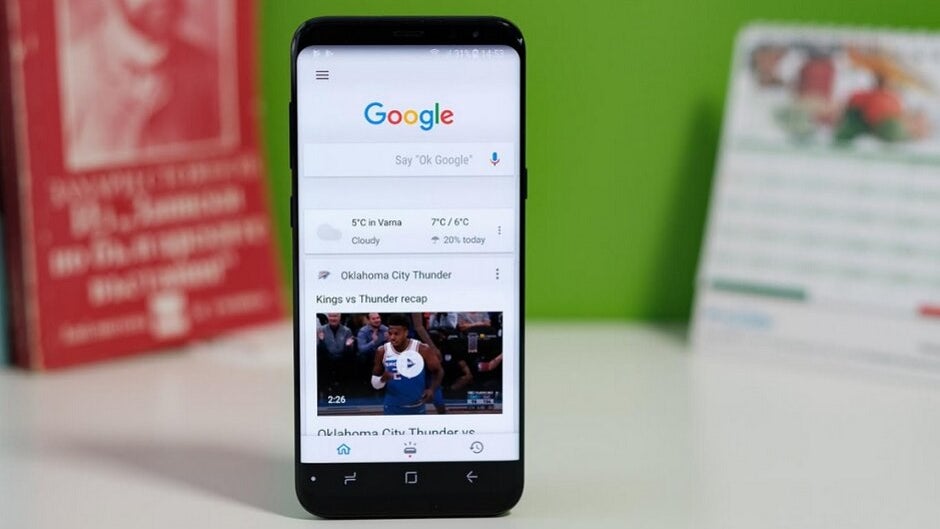
Google announced today in a blog post that it is changing the way its Search app comes up with results. Last year, the company introduced Bidirectional Encoder Representations from Transformers (BERT). The latter figures out the meaning of a word by looking at the words that come before and after it. This helps Google Search figure out the true meaning of a question it is asked. Instead of looking at keywords in a sentence and delivering search results based on those words, BERT looks at the order of the words in a sentence to understand the meaning of them better.
Using a combination of updated software and hardware, Google says that in the U.S., one in ten Google Search requests in English will be understood better thanks to BERT. The company says that over time, it will use BERT in more countries and in more languages. The app will better understand queries that are longer and more conversational, and those where the words "for" and "to" make a big difference in the meaning of a question.
"No matter what you’re looking for, or what language you speak, we hope you’re able to let go of some of your keyword-ese and search in a way that feels natural for you. But you’ll still stump Google from time to time. Even with BERT, we don’t always get it right. If you search for “what state is south of Nebraska,” BERT’s best guess is a community called “South Nebraska.” (If you've got a feeling it's not in Kansas, you're right.) Language understanding remains an ongoing challenge, and it keeps us motivated to continue to improve Search. We’re always getting better and working to find the meaning in-- and most helpful information for-- every query you send our way."-Google
Here's an example. Someone wrote on Google Search "2019 brazil traveler to usa need a visa." Google admits that previously the algorithms it used would have returned results about U.S. citizens traveling to Brazil. But with BERT, Search looked at the use of the word "to" to help it understand that this was a query about Brazilians traveling to the U.S.
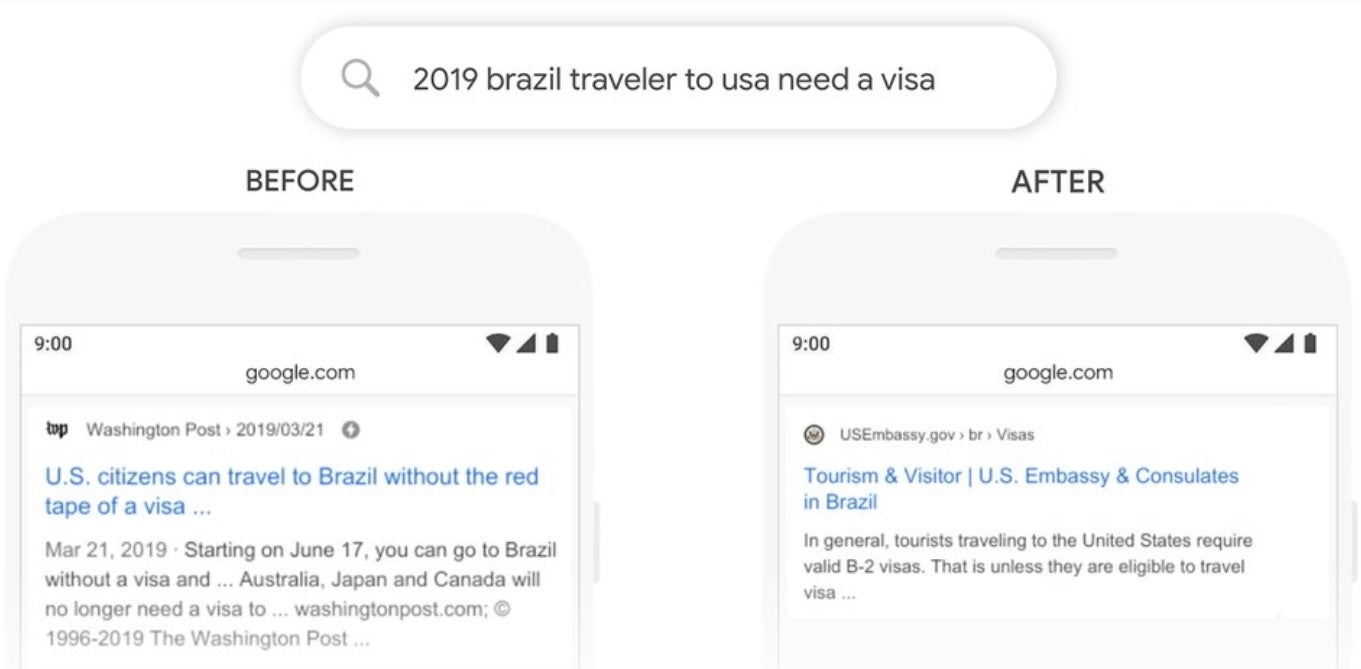
How BERT understands the true intent of a Search query
In another example given by Google, the question "do estheticians stand a lot at work." would have first been analyzed based on matching the keyword "stand" with the term "stand-alone." This produced results that were not useful to the individual's query. But with BERT, Search can figure out the context of the word "stand" and realize that it has to do with the physical demands of the job.
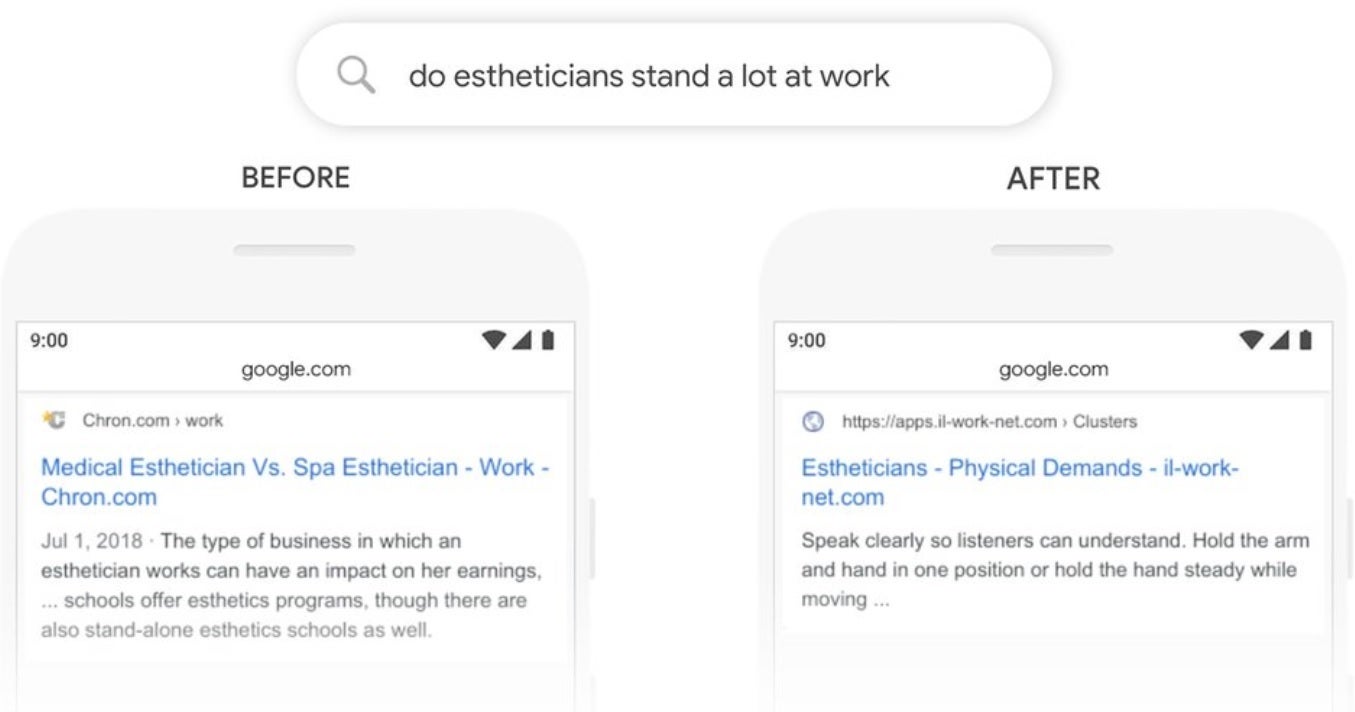
Understanding the context of one word can make a difference in the results served up by Search
The last example is the question "Can you get medicine for someone pharmacy." Google again admits that in the past, it completely missed the real meaning of this question and would serve up a general response about filling prescriptions. Thanks to BERT, Google Search understands that the "for someone" part of the question means that the person asking the query wants to know how to pick up someone else's prescription for them.
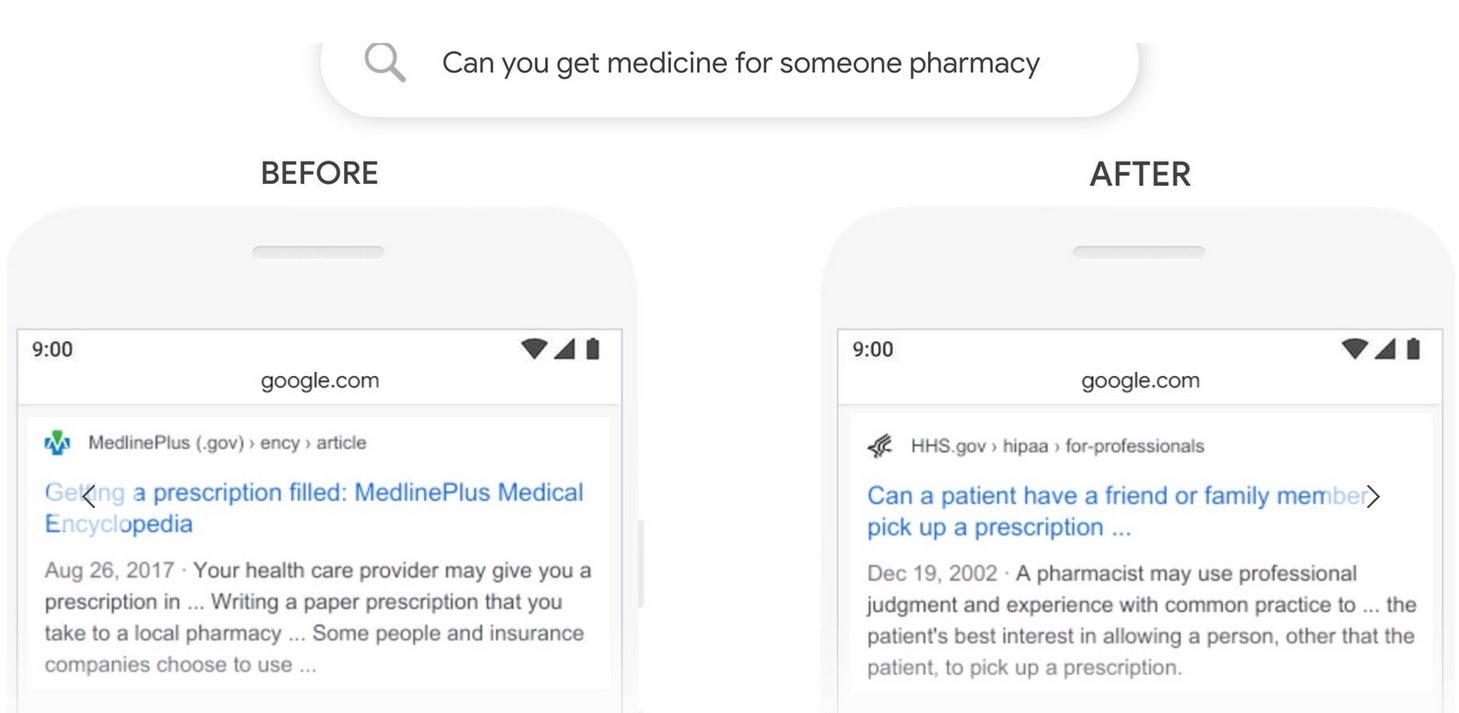
Another example of a Search query that Google admits it would have missed in the past
Most Google Search users won't even know or be able to tell that the app is using a new method to answer questions. Google is always working to improve Search and consider that of the billions of searches it performs each and every day, 15% are ones that Google has never seen before. This makes it even harder to implement improvements that need to be able to work on the fly.
Follow us on Google News



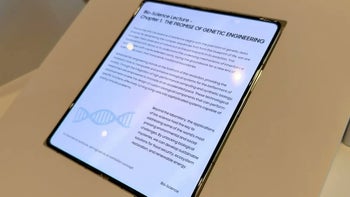


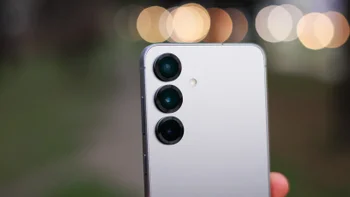






Things that are NOT allowed:
To help keep our community safe and free from spam, we apply temporary limits to newly created accounts: